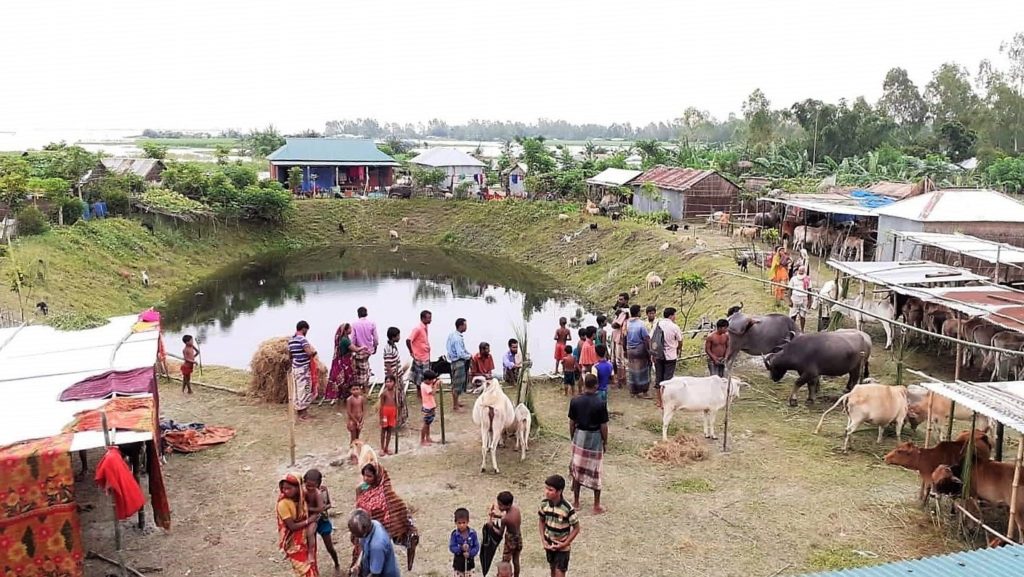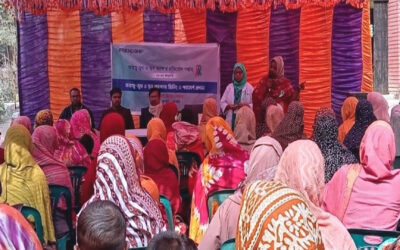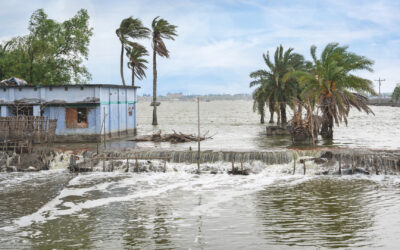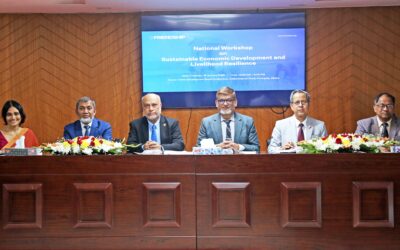Donate for the flood victims: http://goto.gg/41225
A surge in flood waters in the second week of July has inundated 21 districts in Bangladesh, particularly in the north.The main challenge caused by floods usually has to do with time; either the flood lasts so long it causes a scarcity in food and supplies, or it comes on suddenly, leaving farmers unable to save their crops and livestock in time. This time the challenge is its sheer magnitude and emergency support is needed.

The floods this year are extreme, affecting over 2 million people. Their lives and livelihoods are at stake, with people and their livestock in mortal threat of drowning, hunger, thirst, waterborne diseases, and lack of shelter, accessibility and sanitation.
Where Friendship works in Gaibandha and Kurigram, 5 embankments have been broken and caused 180 river islands (chars) to be inundated. Nearly 20,000 tube wells (hand pumps) and more than 23,000 latrines have been damaged. 22 Friendship schools, 33 legal booths, health clinics and 6 Friendship weaving, and vocational training centres have been submerged. 1 Friendship school had to dismantle due to erosion. All 42 schools have been closed temporarily. Friendship is providing rescue, shelter, water, sanitation and emergency medical support from the relief contingency budget, but we urgently need to replenish our supplies to continue.

In the meantime, Friendship’s extant interventions have been strengthened with search and rescue efforts from 400+ Friendship Flood Volunteers and 200+ staff. More than 3,000 people and 3,300 cattle have taken shelter in Friendship’s raised plinths (cluster villages) and 17 Friendship schools. 9 medical teams are operating emergency health services using boats to reach patients in waterlogged areas. 84 Friendship-trained tube well mechanics and 85 solar mechanics are active and giving support in affected areas. 52 temporary tube wells and 57 latrines have been installed. To help people stay connected, floating and static solar powered mobile phone charging stations have been installed on the islands.

10 years ago, food was the first need for flood victims. Today due to the interventions from various organisations, where Friendship played a large role, especially in the riverine islands, people have learned to save money and dry food stocks through our community savings model. Friendship is providing support from the relief contingency budget and we urgently need supplies of medicine, water, sanitation, volunteer support, and more, to continue. If the flood lasts, food and rehabilitation support will be vital for relief.





